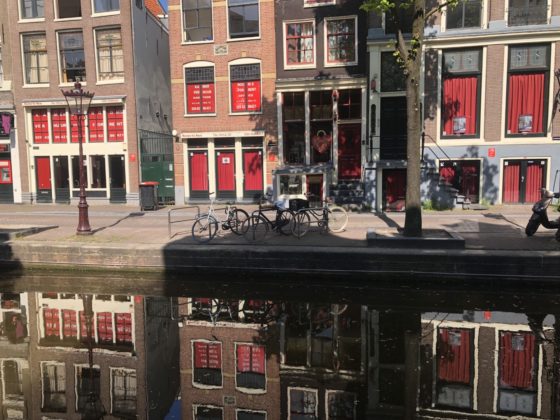Officials shut more illegal brothels during coronavirus closures


Local council officials dealt with more illegal brothels during two years of coronavirus restrictions, police chiefs have told news website Nu.nl.
Sex work was banned during much of the crisis, along with other so-called contact professions, but the number of illegal brothels identified by officials rose, Nu.nl said.
For example, in 2020 officials in The Hague noted that sex work had moved to hotels, and by 2021 to private homes. In 2020, one property being used as a brothel was closed down, in 2021 six.
In Amsterdam, officials took action to stop 27 illegal operations in homes, massage parlours and hotels in 2020, and a further 49 in 2021. The picture was similar in Rotterdam.
The Netherlands legalised brothels in 2000. According to a report for the justice ministry which was published in February, around a third of larger Dutch local authorities have issued licences for sex work, mainly for sex clubs and private houses.
Sex worker rights groups had warned that the closure of brothels would force women to work illegally, because many were excluded from government support schemes.
Although sex workers are supposed to register at the Chamber of Trade (KvK) and pay taxes, many are unregistered and were not eligible for any of support measures for the self-employed. Non-EU nationals without papers were also excluded from any financial support.
Thank you for donating to DutchNews.nl.
We could not provide the Dutch News service, and keep it free of charge, without the generous support of our readers. Your donations allow us to report on issues you tell us matter, and provide you with a summary of the most important Dutch news each day.
Make a donation